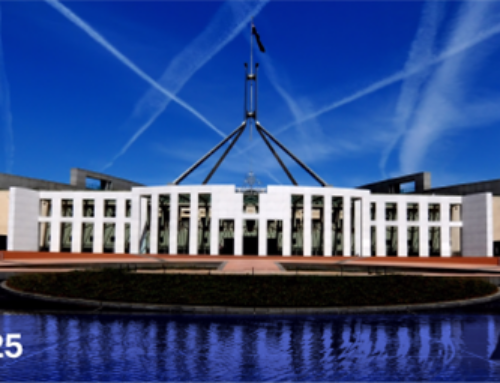Australian Economic & Market Commentary
Consistent with market expectations, the RBA decided to cut the official cash rate by 0.25% to a new record low of 1.25%. CBA and NAB were the only two of the four major banks to pass on the full 0.25% reduction while ANZ and Westpac elected to pass on only part of the cut. In its statement, the RBA indicated it would consider further cuts to stimulate the low level of inflation and support the employment.
Prior to the Federal Election in May, it seemed a virtual certainty that Labor would win government (so much so that one bookmaker actually paid out bets in favour of Labor before the election even happened!). The Coalition won a surprise victory in the election causing a bounce in many of the sectors that would have been impacted by Labor’s proposed policies. With these proposals unlikely to gain any traction in the near future (if ever) some of the doom and gloom, particularly in the property market, has begun to clear.
Australian shares outperformed global shares in May, with the S&P / ASX 200 Index returning 1.7% for the month. Although the overall return for Aussie shares was positive, returns varied greatly at the underlying sector an company level (for example, Telecom Services was up 7.11% while Consumer Staples was down -4.16%).
Global Economic & Market Commentary
Geopolitical issues continued to drive global markets throughout May. The ongoing US-China trade war reared is head once again. Negotiations between the two nations broke down and the increasing threat of protectionism continued to weaken global growth expectations. These factors caused global shares (as measured by the MSCI World ex Australia Index) to fall -4.43% in Aussie dollar terms during May.
Central Banks around the world have generally abandoned plans to increase rates in the immediate future. There is a reasonable argument that central banks (including in the US) may look to reduce rates given low global inflation, ongoing geopolitical risks and the fear of a potential economic downturn.
United States
US Shares (measured by the S&P 500 Index) fell sharply in May, finishing the month down -6.69% in USD terms. This is mainly due the escalations in the US-China the ‘trade war’, most recently the US increasing the tariff rate on US $200 billion worth of Chinese goods and a corresponding announcement by China that it would begin charging tariffs on US $60 billion worth of US goods. These additional tariffs, if they remain in place, will no doubt have an negative impact on the GDP growth of both the US and China.
Despite the uncertain outlook, there is some good news however. The US economy continues to grow at an impressive pace with US GDP growing by 3.1% during the first 3 months of 2019.
China
Chinese shares predictably also fell in May. The Shanghai Shenzen finished the month -7.24% lower, suffering from the same geopolitical forces impacting US shares. China’s economy grew by an impressive 6.4% in the March quarter this year. However, economists estimate the trade war will cause a 1% pa hit to China’s GDP (and 0.4% pa for the US). China has set itself an ambitions minimum GDP growth rate of 6.0% pa meaning that should the trade war continue for a protracted period, China is likely to be at risk of missing this target. The higher fall in Chinese shares over US shares indicates the market’s belief that there is a higher chance the trade war will be resolved more in favour of the US than China.
Europe
Geopolitical tensions are set to rise further in Europe as well. In the UK, Prime Minister Teresa May has resigned and the British Conservative Party are currently in the process of appointing her replacement. The current front runner is Boris Johnson, a more hard-line supporter of Brexit. Should he be appointed, Brexit negotiations between the UK and the EU may become more difficult.
Harvest recently attended the 2019 Morningstar Investment Conference in London. Much of the external commentary around Brexit has concentrated heavily on the economic risks of a ‘no deal’ Brexit, however, within the UK and Europe more broadly, there is a strong believe that neither side will allow a no-deal style Brexit meaning that negotiation deadlines will continue to be pushed out until such time as a formal agreement can be reached.
There was also a lot of discussion about the Bank of England’s plan to raise interest rates more frequently over the next 3 years. Many British companies, particularly in the small to mid-cap segments of the market. are highly leveraged at the current low rates. As interest rates rise, particularly if they do so more quickly than expected, the risks of defaults increase. Morningstar UK’s researchers see that the UK remains an attractive place to invest however suggest focusing on large cap companies that are less leveraged and therefore less sensitive to interest rate movements.




